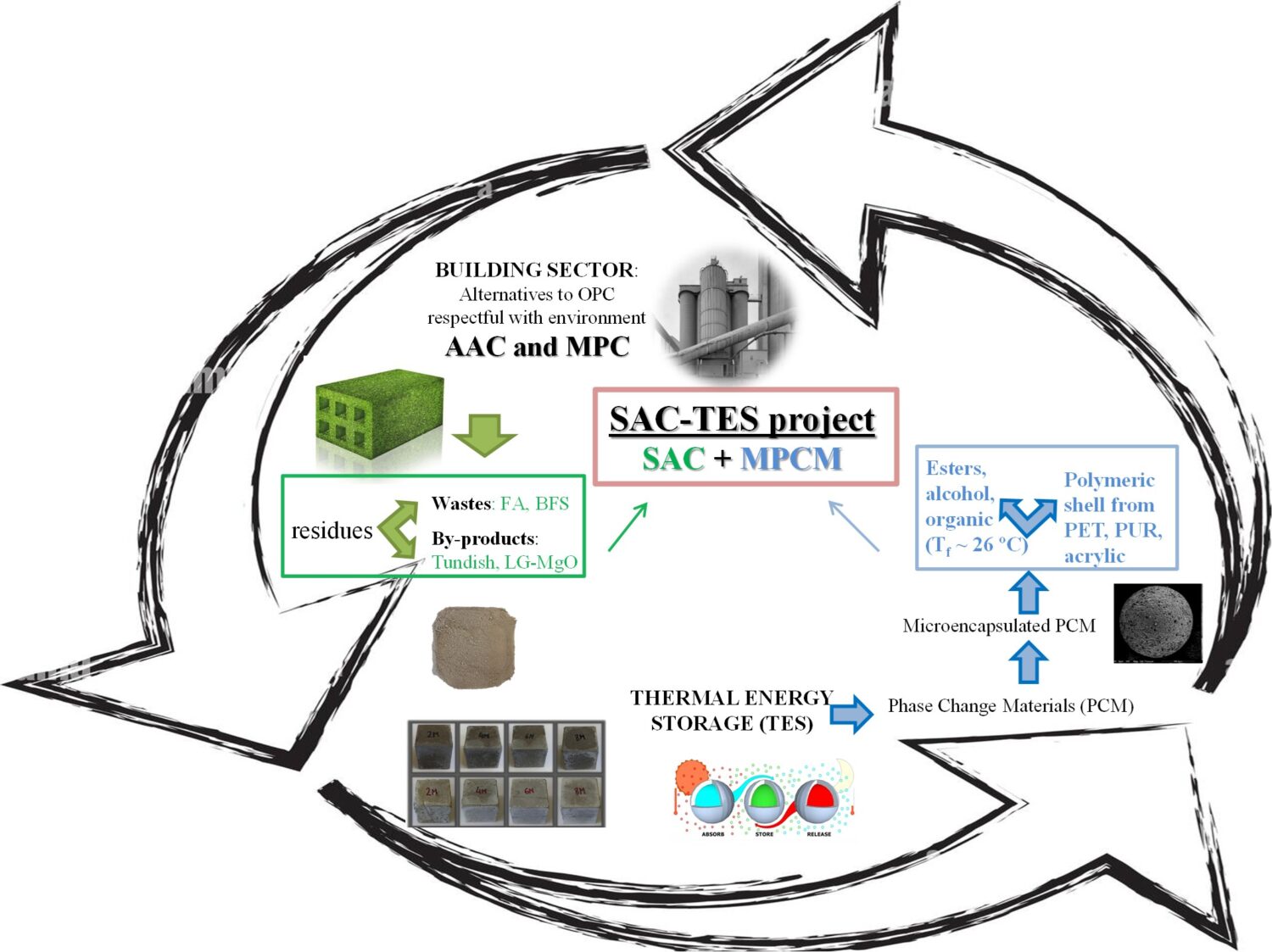SAC-TES: Development of microcapsules with thermal, mechanical and chemical resistance from plastic waste to contain PCM and their use in sustainable alternative cements
CNS2022-1358001 – CONSOLIDACIÓN INVESTIGADORA – 2022 – MINISTERIO DE CIENCIA E INNOVACIÓN

This project focuses on science, technology, and innovation as key axes for achieving the Sustainable Development Goals of the 2030
Agenda. The SAC-TES project has the support of 3 private companies and 1 public entity. Microencapsulated Phase Change Materials
(MPCM) will be developed resistant to pH and temperature, and mechanical resistance to withstand the mixing process. For this, the shell
will be formed through recycled polymers, helping to minimize microplastics dumped in the oceans. The most promising residual polymers
to monomerize are polyethylene terephthalate (PET), polyurethane (PUR) and/or acrylic polymers. Likewise, new PCM will be developed
from renewable sources such as esters or alcohols, with a comfort temperature of around 26 ºC. Once this first part of the project is
completed, different sustainable alternative cements (SAC) to Portland cement will be formulated: alkaline activated cements, AAC, and
magnesium phosphate cements, MPC, with waste and industrial by-products as raw materials. Within the SAC, the AAC will be developed
using raw materials such as metakaolin, blast furnace slag, and fly ash as raw materials; and MPC cements, with a refractory residue from
the steel industry (Tundish) and low-grade magnesium (hydr)oxide, thus reducing the use of natural resources. Once the second part of
the project will be finished, the new SAC and the new MPCM will be mixed to develop new materials for building comfort, SAC-TES. The
optimal conditions will be studied according to the type of cement and the MPCM, evaluating processing, chemical, physical, thermal,
mechanical, and environmental parameters. It will be key to study the rheology of the mixtures, the setting temperature, as well as the
porosity, among others. For the final assessment, a life cycle analysis (LCA) of the materials developed in SAC-TES will be carried out.
Therefore, the final product will contribute to adaptation to climate change, contributing to decarbonization at a European and national level
in the building sector, by proposing constructive solutions to prevent the use of raw materials and improve comfort in buildings, avoiding
energy waste due to the excessive use of HVAC systems, achieving an adequate energy transition. In addition, this project will contribute
to the transition towards a circular economy, using residual materials.
Duration: 2023-2025
PARTNERS

More information: Dr. Jessica Girò